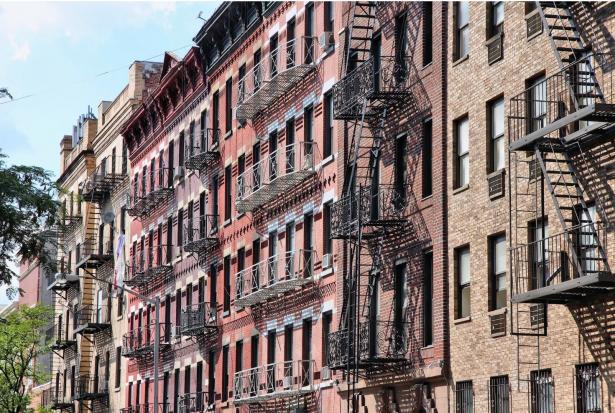With just days to go before the laws governing rent-regulated apartments expire, members of the state legislature have reportedly reached a deal to not only strengthen those laws, but also extend them to even more rent-burdened tenants across the state.
The New York State Senate and Assembly announced on Tuesday that they’ve agreed on legislation to not only extend the rent laws, but codify them permanently, rather than having them sunset every four to eight years as in the past.
The agreement includes many of the protections that tenant advocates have pushed for under the banner of “universal rent control,” though it did not go quite as far as some activists may have hoped. Instead of eliminating the major capital improvements (MCI) loophole, the bill calls for reforming it so landlords who make major renovations can raise rents by 2 percent (rather than 6 percent as before), and narrowing the scope of what constitutes an MCI.
Here’s what else is included in the legislation:
- Ending high-rent vacancy deregulation and the 20 percent “vacancy bonus” landlords can use to bump rents when there’s tenant turnover.
- Preventing landlords from using the preferential rent loophole to drastically increase rents when a tenant renews their lease.
- Making the increases from MCIs and individual apartment improvements (IAI) temporary (to expire after 30 years), and capping how much landlords can spend on IAIs.
- Calling for more oversight by the Division of Housing and Community Renewal (DHCR), which oversees rent regulated apartments.
Lawmakers have also created an avenue for other locales in New York state to opt in to the rent regulation program—it currently only applies to NYC, along with Westchester, Rockland, and Nassau counties—provided they meet certain vacancy thresholds.
In a joint statement, Senate majority leader Andrea Stewart-Cousins and Assembly speaker Carl Heastie said the new laws will “give New Yorkers the strongest tenant protections in history.”
“For too long, power has been tilted in favor of landlords and these measures finally restore equity and extends protections to tenants across the state,” their statement continues.
While the bill significantly strengthens protections for rent-stabilized tenants, it’s not quite the robust victory that advocates had pushed for; one of the most dramatic proposals, the “good cause” law introduced by Sen. Julia Salazar, which would have “prohibit[ed] the eviction of residential tenants or the non-renewal of residential leases without good cause,” is not included in an overview of the legislation.
In a statement, Cea Weaver, the campaign coordinator of Housing Justice for All, called the legislation a “partial victory,” noting that the group will still fight to eliminate MCIs in the future.
“The Senate and the Assembly have come together with a proposal to confront decades of injustice caused by inadequate tenants’ rights in New York State,” Weaver said in a statement. “Housing Justice for All is proud to stand with the State Legislature as it takes meaningful steps forward to end tenant harassment, displacement, destabilization due to rising rents. This bill is affirmation of the strength of the statewide movement that we are building together.”
Mayor Bill de Blasio also praised the deal. “This is a remarkable achievement that will halt displacement, harassment and unjust evictions, and keep working families in the homes they love,” he said in a statement. “Combined with the City’s rapid pace of building and protecting affordable homes, these reforms mean we can go from just holding the line to actually growing the number of apartments New Yorkers can afford.”
The real estate industry, meanwhile, took a more fatalistic attitude. “The rent package currently under consideration by the legislature would devastate New York City’s housing stock and all but wipe out small, local property owners,” Jay Martin, the executive director of the Community Housing Improvement Program, said in a statement.
Martin noted that the provision allowing rent increases from MCIs to expire after 30 years is “creating a regulatory nightmare and gutting these programs to the point of insignificance.”
The group Taxpayers for an Affordable NY—which includes landlord-friendly organizations like the Real Estate Board of New York and the Rent Stabilization Association—went even further, calling on Gov. Andrew Cuomo to outright reject the bill.
“This legislation fails to address the City’s housing crisis and will lead to disinvestment in the City’s private sector rental stock consigning hundreds of thousands of rent regulated tenants to living in buildings that are likely to fall into disrepair,” a statement from the group reads. “This legislation will not create a single new affordable housing unit, improve the vacancy rate or improve enforcement against the few dishonest landlords who tend to dominate the headlines.”
Cuomo has said that he would sign whatever legislation was agreed upon by the Senate and Assembly, but had urged lawmakers to act quickly to prevent an “explosion” if the laws expired.
Amy Plitt moved to New York City when she was 17, and ever since, she's been obsessed with her adopted hometown. As the editor of Curbed NY, she brings that obsession to covering almost every aspect of life in New York, including its real estate, architecture, transportation, neighborhoods, and culture.
Amy's work has also been published in Time Out New York, Condé Nast Traveler, Rolling Stone,and Mental Floss. She's also the author of Subway Adventure Guide: New York City, a a handy guidebook to an oft-overlooked portion of New York's subway system: the more than 30 end-of-line subway stops, and the neighborhoods surrounding them.
Amy currently lives in Brooklyn with her husband and cat, and is a staunch defender of the G train.


Spread the word